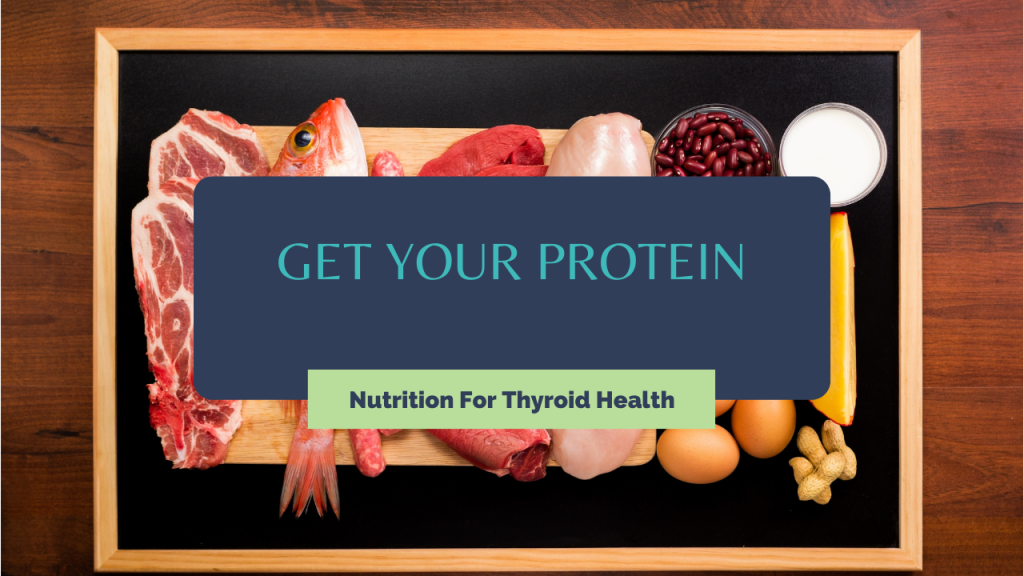If you follow me on this blog, podcast or socials, chances are you have heard me talk about the importance of consuming enough protein in each meal. Having a thyroid gland plays an important role in the body’s metabolism and regulating hormones. But if you don’t have a thyroid, protein is even more critical because it helps your body to function properly. Eating enough of the right kinds of proteins can help you maintain muscle mass and strength, as well as healthy bones and heart. It can also prevent fatigue, weakness, and other symptoms that can arise from not having enough protein in your diet. In this article, we will discuss the importance of consuming protein when you do not have a thyroid gland and provide general tips on how to ensure you get enough each day.
Not All Proteins Are Created Equal
The first step in understanding how much protein you should be consuming is to recognize that not all proteins are equal. Different types of protein can provide different benefits and nutrition, so it’s important to select the best sources for your body. Animal-based proteins like meat, eggs, dairy products, fish, and poultry contain all the essential amino acids your body needs in order to function properly and should form the foundation of your daily diet if you don’t have a thyroid gland. Plant-based proteins such as beans, nuts, seeds, and legumes can also supply certain essential amino acids but may lack some of the others found in animal proteins so it’s important to choose foods from both categories when planning meals.
Symptoms of Not Consuming Enough Protein
There are a variety of symptoms that can arise if you’re not getting enough protein in your diet. Some of the most common ones include fatigue, muscle weakness, impaired wound healing, and slowed growth. If you’re experiencing any of these signs or other health problems, it’s important to consult with your health practitioner to determine if an increase in protein consumption is necessary.
How Much Protein Is Necessary If You Don’t Have a Thyroid Gland
Generally speaking, it’s recommended that individuals without a thyroid gland should aim to consume at least 0.8-1g of protein per kilogram (2.2lbs) of body weight each day. For example, someone who weighs 70kg (154lbs) should aim for 56-70g of protein every day. It’s also important to note that this amount can vary depending on individual factors, such as gender, age, activity level, and medical conditions.
Consuming the right types of proteins can be a challenge if you don’t have a thyroid gland. To ensure you get enough each day, try to plan out your meals ahead of time and make sure they include animal-based proteins like meat or fish and plant-based proteins like legumes or nuts. You may also want to consider supplementing with protein powders or bars if needed.
It’s important to be aware of how the lack of protein can further affect your body if you don’t have a thyroid gland. By consuming the right types of proteins and making sure you get enough each day – and more importantly, in each meal –, for individuals who do not have a thyroid gland. Eating enough of the right types of proteins can help maintain muscle mass, strength, healthy bones, and heart health as well as prevent fatigue and other symptoms from arising.
Not sure where to start? Download my free 7-day meal plan and you’ll get an introduction to eating balanced meals and snacks. In my free meal plan, you’ll get 7 breakfasts, 7 lunches, 7 dinners and 7 snacks that help you do just that.
Let’s Connect!
Say goodbye to fatigue and hello to a full and vibrant life! Join me over in my Facebook group where we are talking all about how to take back control of your health!
Be sure to follow me on my Facebook, TikTok, Instagram and Pinterest for tips and tricks on how to use nutrition to live your very best life!

